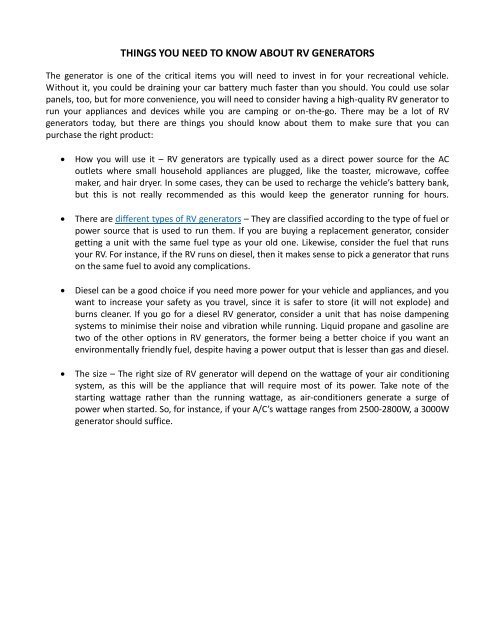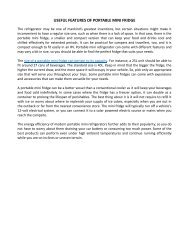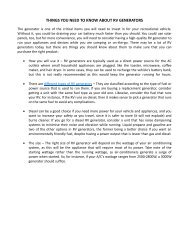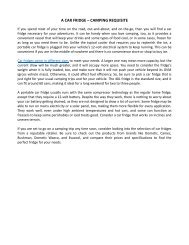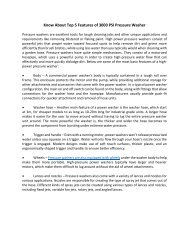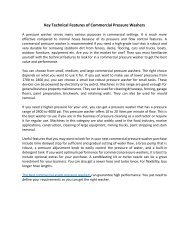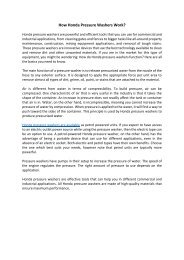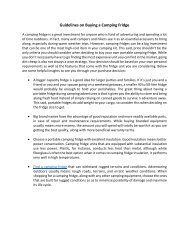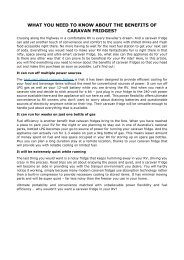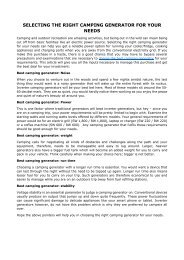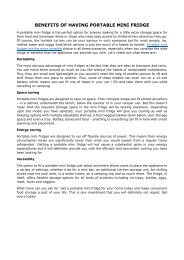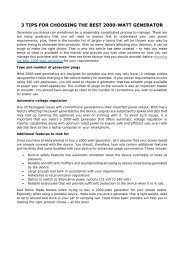THINGS YOU NEED TO KNOW ABOUT RV GENERATORS
You also want an ePaper? Increase the reach of your titles
YUMPU automatically turns print PDFs into web optimized ePapers that Google loves.
<strong>THINGS</strong> <strong>YOU</strong> <strong>NEED</strong> <strong>TO</strong> <strong>KNOW</strong> <strong>ABOUT</strong> <strong>RV</strong> GENERA<strong>TO</strong>RS<br />
The generator is one of the critical items you will need to invest in for your recreational vehicle.<br />
Without it, you could be draining your car battery much faster than you should. You could use solar<br />
panels, too, but for more convenience, you will need to consider having a high-quality <strong>RV</strong> generator to<br />
run your appliances and devices while you are camping or on-the-go. There may be a lot of <strong>RV</strong><br />
generators today, but there are things you should know about them to make sure that you can<br />
purchase the right product:<br />
• How you will use it – <strong>RV</strong> generators are typically used as a direct power source for the AC<br />
outlets where small household appliances are plugged, like the toaster, microwave, coffee<br />
maker, and hair dryer. In some cases, they can be used to recharge the vehicle’s battery bank,<br />
but this is not really recommended as this would keep the generator running for hours.<br />
• There are different types of <strong>RV</strong> generators – They are classified according to the type of fuel or<br />
power source that is used to run them. If you are buying a replacement generator, consider<br />
getting a unit with the same fuel type as your old one. Likewise, consider the fuel that runs<br />
your <strong>RV</strong>. For instance, if the <strong>RV</strong> runs on diesel, then it makes sense to pick a generator that runs<br />
on the same fuel to avoid any complications.<br />
• Diesel can be a good choice if you need more power for your vehicle and appliances, and you<br />
want to increase your safety as you travel, since it is safer to store (it will not explode) and<br />
burns cleaner. If you go for a diesel <strong>RV</strong> generator, consider a unit that has noise dampening<br />
systems to minimise their noise and vibration while running. Liquid propane and gasoline are<br />
two of the other options in <strong>RV</strong> generators, the former being a better choice if you want an<br />
environmentally friendly fuel, despite having a power output that is lesser than gas and diesel.<br />
• The size – The right size of <strong>RV</strong> generator will depend on the wattage of your air conditioning<br />
system, as this will be the appliance that will require most of its power. Take note of the<br />
starting wattage rather than the running wattage, as air-conditioners generate a surge of<br />
power when started. So, for instance, if your A/C’s wattage ranges from 2500-2800W, a 3000W<br />
generator should suffice.


